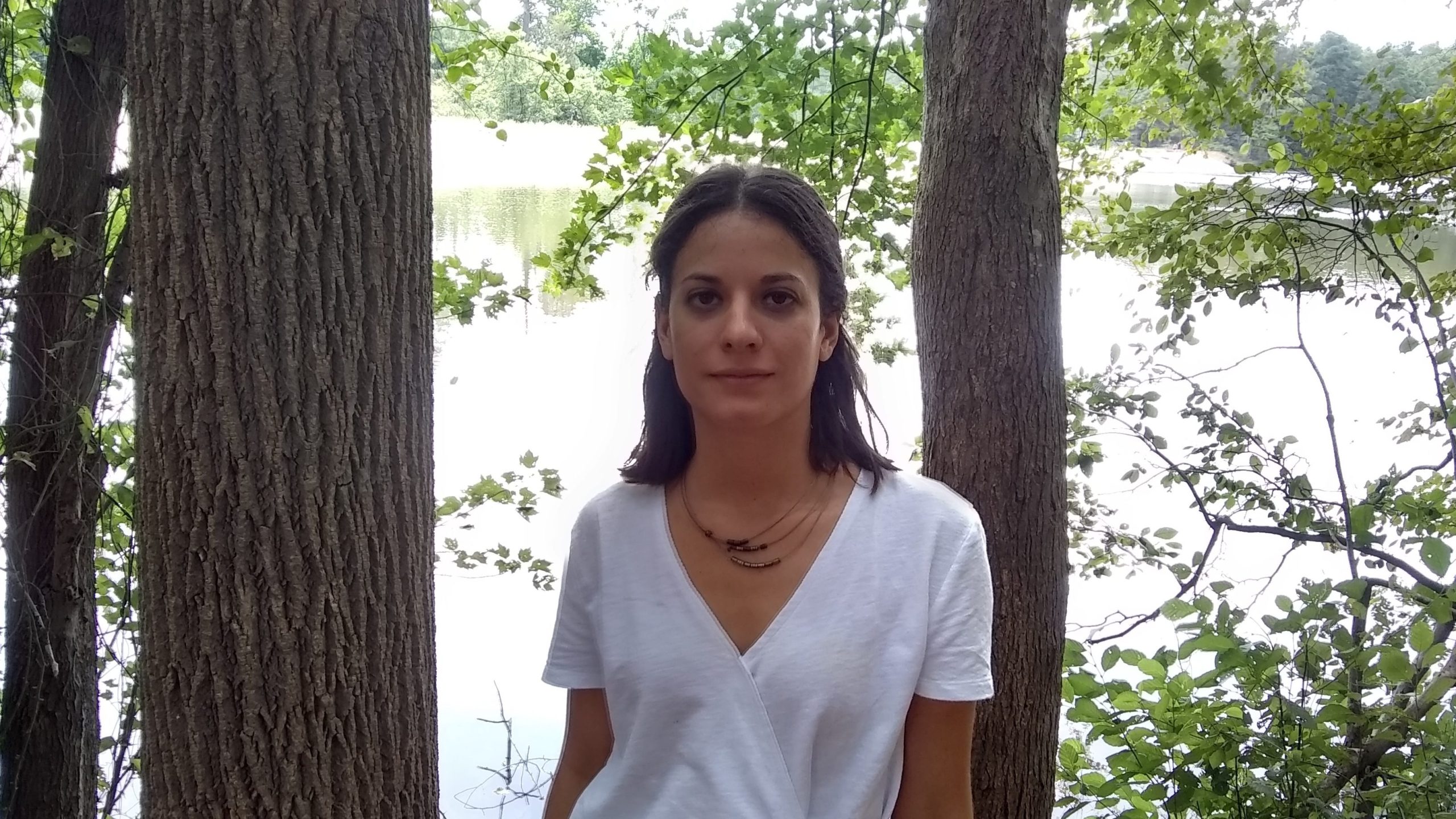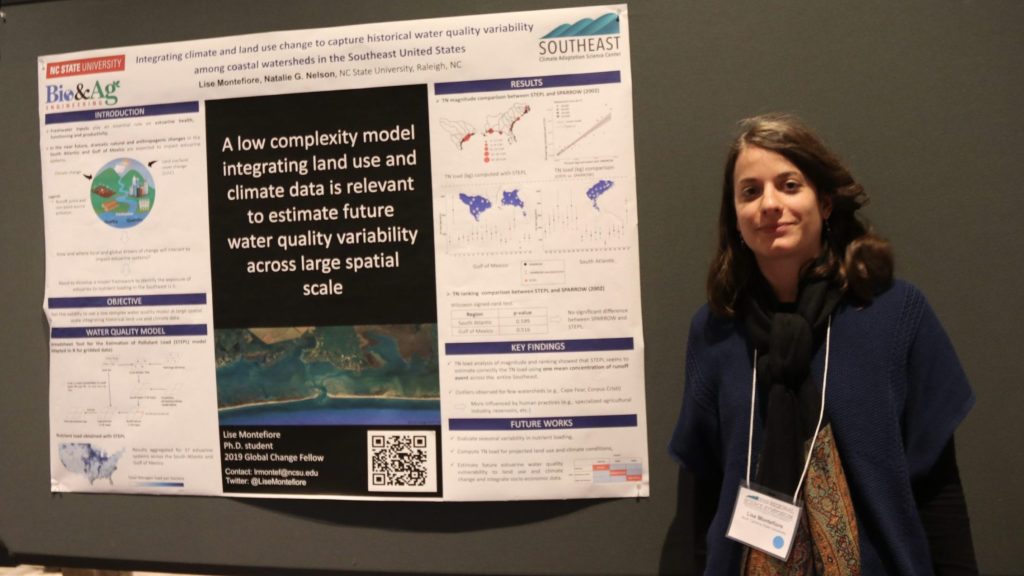Researcher Spotlight – Lise Montefiore

2019-20 Global Change Fellow
PhD Student, Department of Biological and Agricultural Engineering
Advisor: Dr. Natalie Nelson
Every year the Southeast Climate Adaptation Science Center funds a multi-disciplinary cohort of Global Change Fellows representing colleges across NC State University. Here are some highlights about 2019-20 Fellow, Lise Montefiore, and the applied research she’s conducting.
About You
What do you study?
I am working on a variety of complementary and interdisciplinary projects that aim to assess past and future nutrient loading in coastal areas using analytics approaches. In one of my projects, I am reconstructing the geospatial growth of swine farms in North Carolina using satellite images to assess whether a connection exists between swine farm density increase and historical water quality trends. Another project consists of identifying estuarine vulnerability to water quality change under future land use and climate.
What (or who) influenced you to go into this field of study?
I have always been interested in water resources and due to the dramatic increase in environmental data available, there are many things to explore, which makes me thrilled by this field.
What do you think is the most pressing issue related to global change?
There are so many pressing issues that it is not possible to choose. I think it is important to urge people to be aware and prepared that climate change will impact many ecosystems services and communities.
What is your dream job?
I would like to continue research in my field.
About Your Research

What results are you finding?
I do not have results yet, but recently, I have developed a new approach to detect historical swine farm year construction using long-term satellite images.
Who will benefit from your research?
Because my research is interdisciplinary, I think it can benefit local and regional actors. Understanding the past is essential to understand present and future conditions. At the same time, modeling the future is critical to estimate potential changes that could affect coastal areas.
How can your research be used to inform management decisions?
I am planning to develop several maps showing the potential vulnerability of estuarine systems to climate and land-use change. Such information will help in identifying and prioritizing coastal systems at higher risks of water quality degradation.
How would you describe your research to a 3rd grader?
I am studying how human activities affect the quality of the water in which they fish, swim, etc.
About Your Global Change Fellow Experience
How do you expect the SE CASC Global Change Fellows Program to impact you and your work?
The SE CASC Global Change Fellows Program has given me new opportunities and perspectives related to decision-making and science communication that I hope to integrate in my work.
What has been the most rewarding part of being a SE CASC Global Change Fellow?
The most rewarding part of being a SE CASC Global Change Fellow has been to meet new people from different fields and perspectives. Also, I enjoyed and learned a lot from several scientists and environmental managers I have met during this program.
What advice would you give to a student that is interested in getting involved in your field?
There are so many things that need to be explored, so they should talk to researchers to see all the potential the field has to offer.
